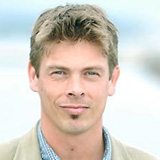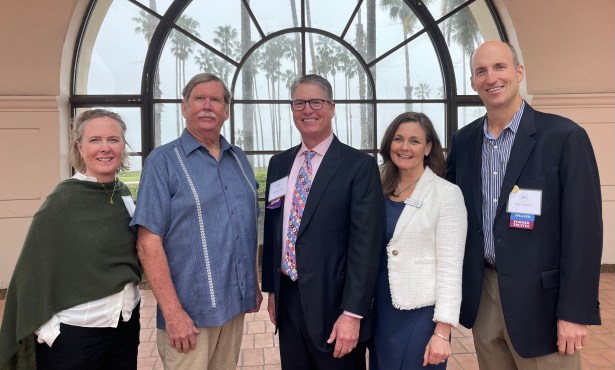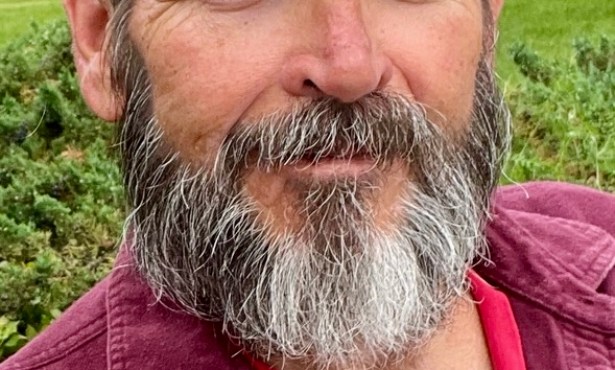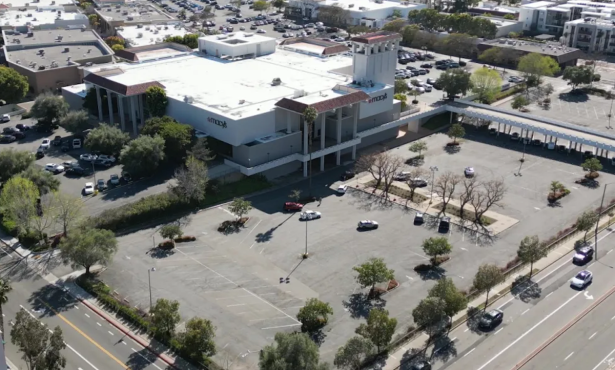Evolutionary Spirituality
Andrew Cohen Talks About God
I was struck recently when perusing the religion section of my local book store by how many versions of the Bible are now available. About three sections of shelves, with five shelves each, displayed the numerous different translations, annotated versions, and other variations of the Bible, both Christian and Jewish. Clearly, the Bible has evolved!
Bart Ehrman, a professor at University of North Carolina, Chapel Hill, has written many books in the last decade on Biblical scholarship. He has demonstrated in books like Misquoting Jesus and Lost Scriptures how the Bible came about, through a limited selection of books among many hundreds available from early Christian groups; and through translation after translation, from the original Greek to hundreds of languages today. This history suggests strongly, as Ehrman argues, that even the earliest editions of the Bible were subject to all sorts of human foibles, as well as transcription and translation errors and emendations. Things change. Things evolve.

What about spirituality more generally? Views on spirituality obviously evolve, with sect after sect splitting away in schism after schism, leading to the many hundreds of Christian, Hindu, Jewish, Buddhist, Islamic, etc. sects we see in the world today.
But does God evolve? Andrew Cohen, a spiritual teacher based in Massachusetts, thinks the answer is a resounding “Yes.” Andrew is the author of a number of books, including, most recently Evolutionary Enlightenment: A New Path to Spiritual Awakening. I interviewed Andrew for my blog, via email. This will be the first in an occasional series of interviews with thought leaders in many different fields.
How did you arrive at your own synthesis of spiritual teachings? I experienced my own transformation through the grace of H.W.L. Poonja, the great master of Advaita Vedanta who I met in Lucknow, India, twenty-five years ago. He had been a disciple of one of the most respected and revered nondual realizers of the twentieth century, Ramana Maharshi. Poonjaji, as he was affectionately called, revealed to me the ultimate truth that the deepest part of each and every one of us, which he called the Self, exists prior to all things. Before time and space, I AM. Before the universe was born, there is infinite freedom. Through awakening to that deepest part of myself, which the Buddha called “the deathless” or “the unborn,” I let go of the belief that I was unfree. That meeting changed my life forever and after only three weeks he asked me to become a teacher in my own right.
His philosophy was what I have come to call “traditional enlightenment,” and it was based on the perennial mystical insight that from the perspective of that deepest Self, the world is an illusion and time and space are only relatively real. This insight liberated my soul, but after I had been teaching for only a short time, I came to understand that the traditional approach only gives us half the picture. In telling us that the world isn’t real, it allows us to let go of our attachment to it, and in that letting go, experience spiritual liberation. But what if we are not convinced that the world is unreal? What are we to do then? This was my predicament as a young teacher. As touched as I had been by awakening to the unborn Self beyond time and space, I had never been able to accept the assertion that the world was an illusion. Not only did I believe that the world was real but I also came to give much greater value to Spirit’s power to affect change in the world than its power to liberate us from it. For this reason, I began to give more importance to spiritual actions than spiritual experiences.
As a teacher I was, and still am, looking for ways to make deep sense out of life and the human experience. The reality that was gradually revealing itself to me was that life was a vast universal process rather than merely a personal adventure. This emerging intuition began to crystallize about 15 years ago, when I discovered, through the work I was doing with my students in creating our award-winning magazine EnlightenNext, the liberating perspective of an evolutionary worldview. From cosmologist Brian Swimme I learned how to see the human experience in the context of an evolving cosmos. Reading Christian theologian Pierre Teilhard de Chardin and the great Indian mystic Sri Aurobindo made it apparent to me that that process is a spiritual unfolding. Through my growing friendship with the great contemporary philosopher Ken Wilber, I came to appreciate the power of Integral Philosophy as a lens through which to see the multidimensional complexity of reality. Spiral Dynamics wizard Don Beck introduced me to the work of Clare Graves, which helped me understand how human culture has evolved through progressive stages. Slowly but surely, these powerful truths, and many others, have seeped deeply into the core of my being. Over the years, the profound enlightenment that I received from my teacher and these new big ideas have fused and become one in the most miraculous way.
How is Evolutionary Enlightenment different than traditional Vedanta or Buddhist teachings? It’s very different. As I explained, the goal of traditional enlightenment, to put it simply, is about transcending the world and experiencing freedom from it. The goal of the new Evolutionary Enlightenment is about creating the future. It is based upon the recognition that highly developed human consciousness and cognition is the leading edge of the developmental process that began almost 14 billion years ago. The energy and intelligence that created the universe is perceiving its own creation through your very own heart and mind. Where we’re all going depends on the choices you make and the actions you take. That’s why Evolutionary Enlightenment is not about transcending the world; it’s about creating the future.
Do we have to believe in a guiding intelligence behind evolution, as you suggest, to accept the teachings of Evolutionary Enlightenment? We don’t have to believe in anything to accept the teachings of Evolutionary Enlightenment. All we need to do is look into the truth of our own experience and what science has revealed to us. 13.7 billion years of cosmic evolution has given rise to 3.8 billion years of biological evolution, which has given rise to tens of thousands of years of cultural evolution. We’re on a moving train. We’re all part of a process that’s going somewhere. We don’t have to believe in a guiding intelligence but we can feel the drive of an evolutionary impulse, as I like to call it, as a tangibly felt energetic presence in our own experience at different levels. At the lowest level, the sexual drive can be recognized as an evolutionary impulse. At a much higher level, the uniquely human compulsion towards innovation can be recognized as an evolutionary impulse. And finally, at the highest level, the spiritual impulse, which is a compulsion towards higher consciousness, can be recognized as an evolutionary impulse. Something miraculous is going on here and it’s trying to happen in and through all of us in every moment.
Is the fundamental duality of nature you describe (manifest/unmanifest) a sharp split or more of a continuum from pure potentiality to complete actuality? It’s a continuum, as you say, from pure potentiality to complete actuality. From an absolute perspective, there is only One – no distinctions, no difference between the manifest and the unmanifest. But once we step down one billionth of a millimeter from that absolute position, all distinctions appear and suddenly the manifest and the unmanifest become opposites, parallel realities that are a complete paradox.
How can that which is changeless (you assert that the ground of being is changeless) form the basis of an evolutionary approach to spirituality? Isn’t that the biggest mystery of all: how did something come from nothing? But it did. Absolute zero is the foundation of everything that is. The evolving universe and all of manifestation emerged and continues to arise from infinite emptiness. That is a mystery that I believe we will never truly be able to grasp with the mind.
You state that evolution is driven by god, as an intelligent and creative force, so how do you approach the problem of evil, which has bedeviled (all puns intended) theologians through the millennia? Using the word God is always tricky as it’s a very charged term that means different things to different people. I like to use that word to represent the idea of an absolute principle. In an evolutionary context, we could choose to describe that absolute principle as “the energy and intelligence that initially created and is continuing to create the universe.” In the way that I understand it, that driving force is more an impulse than it is a divine being. In that impulse, there is no predetermined plan at work. It is a directionality, a momentum, a reaching towards.
The whole question of evil is obviously a very big one. What I think is important to understand is that the very notion of good and evil only arises at the leading edge of the evolutionary process. Only after human culture emerged on our small planet around 50,000 years ago did the capacity to make moral distinctions emerge. That means that within a 14 billion year developmental process, the kind of question we are talking about has only very recently emerged in our universe. There is no creator God or divine being, separate from the evolutionary process as a whole, who gives rise to what we could choose to call “evil.” In fact, it is the evolution of human consciousness itself that makes it possible for us to make the distinctions between good and evil in the first place. And it is in our ability to make these distinctions that the higher, spiritually inspired aspiration for a world free from evil and aggression arises. I believe, as do other evolutionary thinkers, that our own highly developed human consciousness is not separate from that same energy and intelligence that created the universe. So therefore, we could say that as you and I aspire for a world that’s free from evil and aggression, it is actually none other than the creator of the universe, as us, that is desiring that very same possibility.
You cite Aurobindo and Teilhard de Chardin as strong influences in your thought, and you have elsewhere cited Alfred North Whitehead as an influence. All of these thinkers were panpsychists. Would you describe yourself as a panpsychist? My understanding of panpsychism is that it states that consciousness goes all the way up and all the way down the great chain of being from matter to life to mind. It’s my sense that some form of interiority goes all the way down but I personally believe that what we could call consciousness only enters into the stream of existence when life emerges.
You gently criticize the notion of “be here now,” advocated by a great many spiritual teachers, in favor of a future-oriented spirituality. But isn’t it true that we only ever exist in the now and if we don’t embrace this truth we can never be happy now? The process philosophy view of the world holds that we do impact the present through our choices in every moment, as well as the future. Yes, I agree that if we don’t embrace the present moment we won’t be able to be happy. That being said, “Be Here Now” and the “Power of Now” mysticism point us towards the mystery of the eternal present, the timeless, infinite ground of all Being as the source of spiritual freedom. But in the new Evolutionary Enlightenment that I teach, I point towards a different source of spiritual emancipation, which is what I call the Evolutionary Impulse, that miraculous energy and intelligence that took that leap from nothing to something and created and is still creating the entire universe. The evolutionary impulse within each and every one of us is always reaching toward the future. So for one who has awakened to that impulse, embracing the present moment means that the future is existing as an ever-present living potential, right now. With this awareness of the future, your consciousness expands and there’s a sense of being intensely awake. Why? Because your conscious, living relationship with the future begins to enlighten your relationship to the present moment—enlighten it with conscience and purpose. So yes, there is a tremendous care about now, about this moment, because of your awareness of the future. So that means that your active, participatory relationship with the present moment becomes an expression of your care for the future. It’s my conviction that this kind of evolutionary orientation to mysticism is much more culturally relevant to the time and the world we are living in.
Perhaps my favorite western teacher of Eastern spirituality, Alan Watts, stressed in his teachings the full identity of our self with the universe in its totality, with Brahman. A generic term I use for this spiritual knowledge is gnosis. You fully acknowledge this timeless truth but seem to place more emphasis on personal evolution and by doing so helping God itself evolve. Can you explain the reasons for your focus on personal and universal evolution rather than working to understand that we are, each of us, the All, the universe, God, Brahman, in each and every moment? Yes. It is true that from the perspective of absolute nonduality, we are all always one with the universe and its totality, with Brahman. That being said, in post-traditional evolutionary mysticism, we choose to give more significance to the all-important fact that our universe, in its totality, is going somewhere, is evolving. That introduces a new dimension to mystical insight: the realization that God or Brahman is also evolving. And then there is even one more step to this enlightening truth, which is the recognition that as we human beings consciously choose to evolve, God or Brahman evolves, in, through, and as us. That is why, in the new evolutionary mysticism, our own personal conscious evolution is of the greatest significance.
I very much like the idea of co-creating God, through our own evolution and the evolution of the rest of the universe, which you focus on in your work. Do you feel that there is a conscious God in the universe? As we help God (whether conscious or better thought of as a non-conscious principle) evolve through own evolution, will that mutual feedback loop between us and God become more pronounced? God and the universe is only as conscious as we are, in our best and highest moments. Moments of mystical insight reveal our potential to see through the eyes of Spirit. In evolutionary mysticism, there is no God or Spirit that is in any way separate from the creative process itself. The evolving universe gains the capacity for consciousness through giving rise to life, and through life, higher and higher capacities for interiority. As life forms become more and more conscious, the universe simultaneously awakens to itself and becomes Self-aware. With the attainment of mystical insight, the creative process awakens to itself through us, as Spirit in action. So the answer to your question is yes.
Are your own views still evolving? If so, what is the single biggest area of doubt you personally have when it comes to spiritual matters? My own views are constantly evolving and I’m always exploring dimensions of Evolutionary Enlightenment that need further scrutiny and development. That being said, I do feel confident that my teaching has now reached a fundamental degree of integrity and wholeness as a developmental path. That has taken 25 years! My single biggest area of doubt is whether enough human beings will attain a higher level of consciousness and cognition soon enough to prevent our collective ship from sinking.
I enjoyed your book and let me end with a more personal question: how do you personally find the balance between being human and being something of a guru to many people? That’s a good question! The truth is I don’t experience the need to find any “balance” between being a human being and being a spiritual mentor. In the front office of the Sivananda Ashram in Rishikesh, India, there is a sign on the wall. It reads, “Teaching means Being.” Ever since I became a teacher overnight twenty-five years ago, my experience has been that it is more natural than anything else for me to be the teacher that I’ve become. I know this is hard to believe, but for me being a teacher is my natural state. In that there is no fear, self-consciousness, or doubt. At times when I’m not in my teaching role, however, I find myself worrying about things that don’t really matter. For example, I’m an aspiring jazz drummer, I practice every day and play in a band that performs regularly in clubs. On busy days or when I’m traveling and don’t have enough time to practice, I worry that I won’t be able to become the drummer that I want to be . . . When I teach, concerns like these fade into oblivion, so the answer is that I find my balance and liberation through being who I really am.



